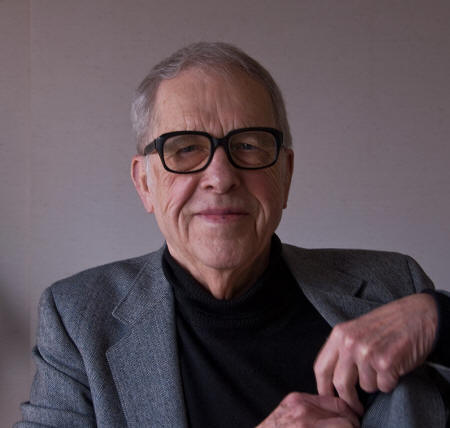

Queer Places:
Columbia University (Ivy League), 116th St and Broadway, New York, NY 10027
708 N Jameson Ave, Lima, OH 45805
 Donald
Steiner Richie (17 April 1924 – 19 February 2013) was an American-born author who wrote about the Japanese people, the culture of Japan, and especially Japanese cinema.[1] Although he considered himself primarily a film historian,[2] Richie also directed a number of experimental films, the first when he was seventeen.[3]
The greater tolerance in Japan for male homosexuality than in the United States was one reason he gave for
moving to Japan, as he was openly bisexual.[7] He spent much of the second half of the 20th century living and working alone in Tokyo, with the exception of a brief marriage to the American writer Mary Evans from 1961 to 1965. Richie served as Curator of Film at the New York Museum of Modern Art from 1969 to 1972. In 1988, he was invited to become the first guest director at the Telluride Film Festival.
Donald
Steiner Richie (17 April 1924 – 19 February 2013) was an American-born author who wrote about the Japanese people, the culture of Japan, and especially Japanese cinema.[1] Although he considered himself primarily a film historian,[2] Richie also directed a number of experimental films, the first when he was seventeen.[3]
The greater tolerance in Japan for male homosexuality than in the United States was one reason he gave for
moving to Japan, as he was openly bisexual.[7] He spent much of the second half of the 20th century living and working alone in Tokyo, with the exception of a brief marriage to the American writer Mary Evans from 1961 to 1965. Richie served as Curator of Film at the New York Museum of Modern Art from 1969 to 1972. In 1988, he was invited to become the first guest director at the Telluride Film Festival.
Donald Steiner Richie was born in Lima, Ohio. During World War II, he joined the United States Merchant Marine and served aboard Liberty ships as a purser and medical officer. By then he had already published his first work, "Tumblebugs" (1942), a short story.[4] In 1947, Richie first visited Japan with the American occupation force, a job he saw as an opportunity to escape from Lima, Ohio. He first worked as a typist, and then as a civilian staff writer for the Pacific Stars and Stripes. While in Tokyo, he became fascinated with Japanese culture, particularly Japanese cinema. He was soon writing movie reviews in the Stars and Stripes. In 1948 he met Kashiko Kawakita who introduced him to Yasujirō Ozu. During their long friendship, Richie and Kawakita collaborated closely in promoting Japanese film in the West.[5] He began composing contemporary music and released a title for ballet at that time.[6] After returning to the United States, he enrolled at Columbia University's School of General Studies in 1949 and received a B.S. degree in English in 1953. Richie then returned to Japan as film critic for The Japan Times and in 1959 published his first book, The Japanese Film: Art and Industry, coauthored with Joseph Anderson, which gave the first English language account of Japanese film.
Richie was a prolific author. Among his most noted works on Japan are The Inland Sea, a travel classic, and Public People, Private People, a look at some of Japan's most significant and most mundane people. He has compiled two collections of essays on Japan: A Lateral View and Partial Views. A collection of his writings has been published to commemorate fifty years of writing about Japan: The Donald Richie Reader. The Japan Journals: 1947–2004 consists of extended excerpts from his diaries. In 1991, film makers Lucille Carra and Brian Cotnoir produced a film version of The Inland Sea, which Richie narrated. Produced by Travelfilm Company, the film won numerous awards, including Best Documentary at the Hawaii International Film Festival (1991) and the Earthwatch Film Award. It screened at the Sundance Film Festival in 1992.[9] Author Tom Wolfe described Richie as "the Lafcadio Hearn of our time, a subtle, stylish, and deceptively lucid medium between two cultures that confuse one another: the Japanese and the American."[10] Although Richie spoke Japanese fluently, he could neither read nor write it proficiently.[11] Richie died, aged 88, on February 19, 2013, in Tokyo.[12]
My published books: